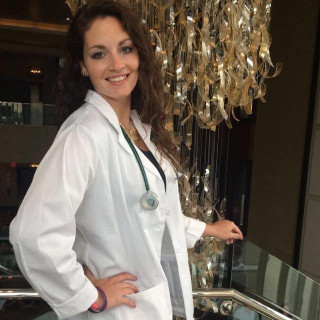“Listen to your patient; he is telling you the diagnosis,” the wise words of the famous Dr. William Osler were repeated to me as a medical student when I was first learning the art of taking a patient’s history. He emphasized the importance of spending time going over details of symptoms with patients, suggesting that this extra time spent hearing the patient’s story was worth just as much as more invasive and expensive tests.
As a medical student in New Orleans, many of my attendings had built their careers at Charity Hospital which had served underserved patients from all over Louisiana. They taught us to spend all the time necessary to sort out our patient population’s very complex medical histories, and the social determinants of health that affected their outcomes every day. We sat with patients and explained complex diagnoses. We called primary care practices, family members, and even pharmacies to track down information when necessary. I graduated medical school feeling confident that I had a solid routine in place to take the best care of my patients.
Then came July of my intern year. I was on 24-hour call on a busy operative service as the only surgical team member in house. I was accepting all acute care surgery admissions from our 80 bed ER — not to mention transfers from community hospitals across five states and consults from more than 500 inpatient beds. How was I going to get every patient admitted with notes done in our unfamiliar EMR by morning?
My senior resident had a solution for me: “Every consult needs to be seen in 5–10 minutes or less. You need to go to the ED and get out quickly. You just have to be more efficient.”
Over the next two months on that rotation, I did become more efficient: I’d learned tricks in the EMR, made my own dot phrases, set up dictation on my cell phone, saved important phone numbers, and polished a concise spiel for informed consent for common procedures.
But I never did figure out how to see a five minute consult. It was an impossible task, and one I didn’t have much interest in succeeding at. There were elderly patients dropped off with a note from their family, and a shoebox full of pills. There were stacks of cryptic paper records from an outside hospital accompanying patients who were dying of a mystery ailment. There were patients who only spoke Kirundi or Bosnian who had a flood of questions when I finally found a translator. There were goals of care that had to be ascertained before taking someone to surgery, and families who finally voiced vital information as I placed my hand on the door handle. None of these patients could be seen in less than five minutes.
None of this is to say that there aren’t definite upsides to efficiency. As I’ve learned to be more efficient, I’ve been able to expedite low education-value tasks (such as getting a patient with TPN discharged out of state) and created more time for hands-on learning. I logged twice as many OR cases in the spring of my intern year as I had on the same rotation in the fall.
But as residency has gone on, I’ve gathered additional unsolicited advice on how to become more efficient: Spend less time teaching medical students. Spend less time on the phone with floor nurses when they call with concerns. Spend less time talking to families. Spend less time writing thorough progress notes and clinic notes; they just have to be done.
In short: Spend less time actually being a doctor.
The obvious problem with this admiration for efficiency is that our most valuable stakeholder — our patients and their families — don’t deserve that. “Update family Room 2207” is a task on my to do list, but for them, it’s the part of the day where they learn about how sick their critically ill family member is becoming. It’s a conversation that has a massive impact on the rest of their day, if not the rest of their year, and it’s not one that can be had in any pre-prescribed amount of time.
Time “wasted” teaching medical students may seem like an easy opportunity to free up minutes in a busy day; however, when I was a medical student, I benefited from residents who taught me how to do bedside procedures, tied knots on water bottles in the workroom with me until I got it right, and set me up for success on rounds. The amount of time and attention they put in to teaching was a significant factor in feeling like I had a place in surgery. Every time I get an email or text from a medical student saying they’ve decided to become a surgeon (or that they never want to be a surgeon, but enjoyed the rotation anyway), it’s nice to know I’ve been able to pay this forward.
Residency is a time where physicians build skill sets that they carry into their future practices, and shape the type of attending they want to become. Many of my resident colleagues and I have a vision for our future practices that does not necessarily include being the kind of surgeon who is lightning fast at writing notes. Instead, it includes being the kind of surgeon whose patients will remember helping them through a tough time or serious illness. In addition to the obvious need to spend time in the OR sharpening technical skills, or reading literature and honing clinical decision making skills, I believe that we need these “soft skills” — like breaking bad news to a family, teaching complex topics, leading a team, or hearing out concerns from nurses. And none of these skills will still be there in five years if they aren’t prioritized in residency.
While there are things people can do that truly improve efficiency, too often, the word “efficiency” is actually used to mean “fast.” But “fast” and “efficient” are not the same thing. It is possible to see a patient in five minutes in the ED, but this comes at a price. Maybe one doesn’t need to “waste” time going into detail about a patient’s medical history when he says he has no medical problems. But it certainly isn’t efficient to have the case canceled the next day when anesthesia discovers the patient has unstable angina, a fact that would’ve been discovered on admission had the resident asked how many flights of stairs the patient could walk, or if he had chest pain in his daily life.
Additionally, the value of efficiency that’s so ingrained in resident education has the potential to be used as a bandage for larger issues. Asking junior residents to be more efficient might help fix ACGME work hours violation issues temporarily, but won’t provide the structural change needed to sustain a rapidly growing and aging patient population and an always-at-capacity hospital census. A resident can care for 20-plus inpatients by herself, particularly when being efficient; however, a recent Lancet publication “The Association Between Physician Staff Numbers and Mortality in English Hospitals” demonstrated statistically significant lower-than-expected patient mortality with lower physician to patient ratios. This suggests that just because a resident can learn to be efficient enough to take care of a high number of patients, doesn’t mean she necessarily should be.
There is a lot to learn and accomplish in just a few years as a resident, and while there is always work that needs to be done, the larger context of this work needs to be maintained. Medicine is high stress because there is so much at stake for our patients, and truncating important conversations with patients, limiting educational engagement with students, or hurrying nurses off the phone for the sake of efficiency isn’t worth it. Structural level change is needed to maintain safe and optimal patient care environments; asking residents for efficiency won’t change that, but it might hurt the depth of the skills this generation of physicians comes away with.
How do you balance fast and efficient? Share how you decide what you prioritize in the comments.
Colleen is currently a general surgery resident in Salt Lake City, UT. She hopes to pursue a career in academic surgery where she can continue teaching, writing, and research in addition to clinical practice. She has an MD/MPH from Tulane University in New Orleans, LA, and hopes to continue to use public health principles to improve surgical outcomes for patients. In her very extensive free time as a surgery resident, Colleen enjoys art, skiing and snowboarding, hiking, writing, dancing, and practicing yoga. Colleen is a 2021–2022 Doximity Op-Med Fellow.
Image by jossnatu / GettyImages







